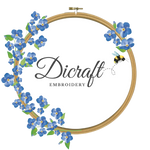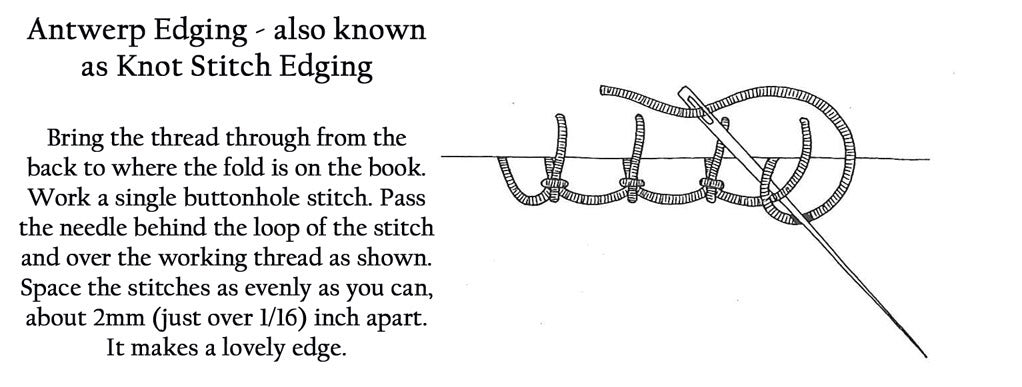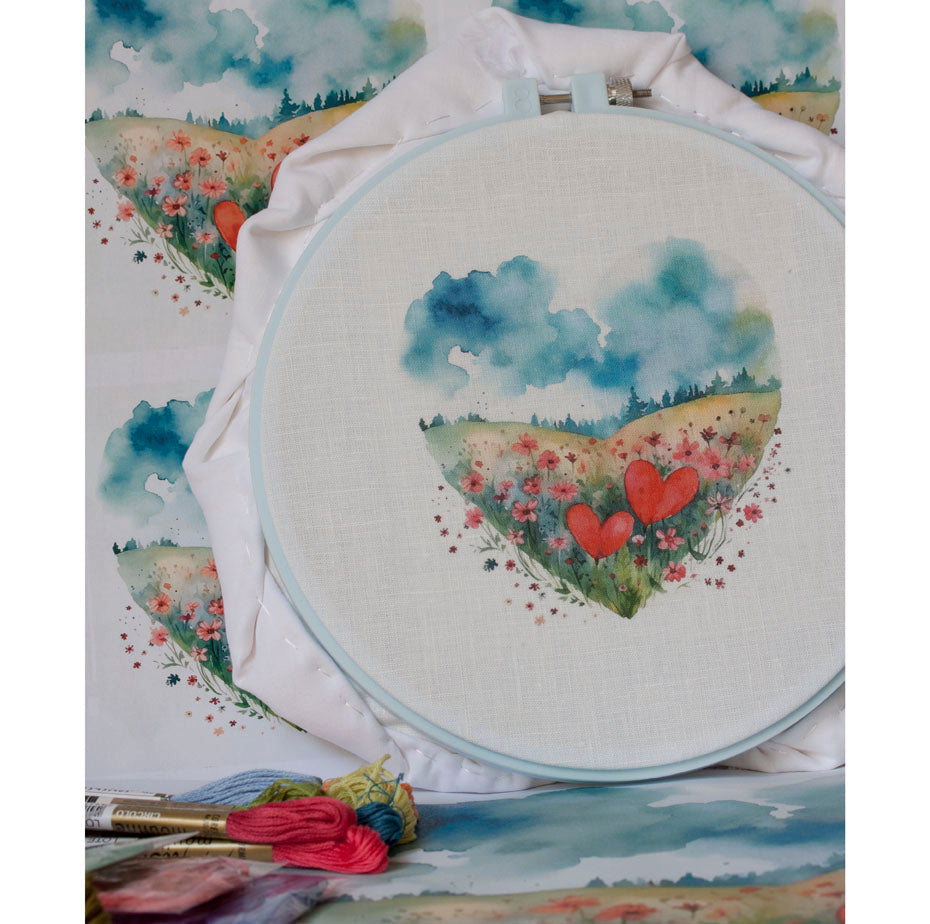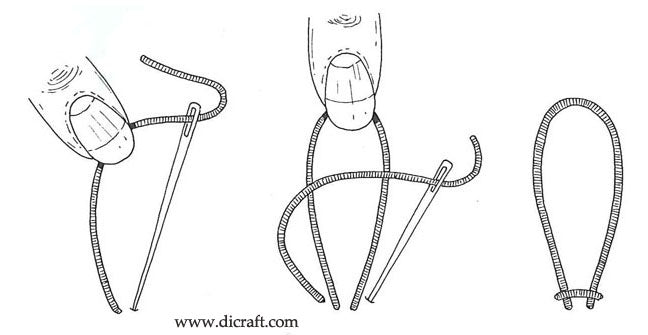Welcome to my Blog. This a place to share and learn all things embroidery. Here I post inspirational stories and free lessons in the form of tutorials and guides. I also share tips, tricks and teach stitches and techniques.
You will also find free patterns and designs for you to unlock your creativity. It is a great place for any creative looking to learn or find inspiration in this art form.
To stay in the loop with Dicraft you can subscribe to my newsletter and stay in touch on Instagram and Facebook.
Blog >
Stitches & Techniques
Bring the thread up from the back (or somewhere hidden in the folds). Work single buttonhole stitch. Pass the needle behind the loop of the stitch and over the working thread as shown. Space the stitches as evenly as you can, about 2mm (just over 1/16") apart. It makes a lovely edge.
Read More
Slip Stitch is used to attach shapes to the background. Use 1 or two strands of matching cotton or silk and make neat and even stitches for a good finish.
Read More
I always work on an embroidery frame or hoop. Some embroiderers like to use small hoops but if you learn to stitch in a larger hoop, you can see the entire design whilst you stitch. This helps with choice of colour and texture — one needs to see the bigger picture when deciding on colour and texture, plus the larger hoop does not damage the stitches. . Hint About Stitches All...
Read More
I learned the hard way that nothing even begins to touch side with Di’s ribbons for superb softly variegated colours, which look so natural, softness and suppleness and absolute consistency in quality. And so, over the years, I have stayed true to Di’s ribbons, producing bowls or baskets of roses, tulips, peonies, and daffodils that can be found in homes in the USA, Ireland, and South Africa.
Read More
Honeysuckle Cottage Don't you just love this lovely ribbon embroidery piece by the talented Fatima Paruk from Kloof in Kwazulu-Natal? It's one of our Cottages that we printed onto pure cotton fabric for embroidery. Her teacher, Annamaria Kelly showed Fatima how to make the lovely thatch roof with Lana wool thread from Madeira (but you can also use any thin yarn). The picket fence Annamaria found at her local stationery...
Read More
Woven PICOT STITCH by Di van Niekerk This is perfect stitch for long, loose leaves and the best thread for this stitch is Perlé 8 or 12 . To make a fatter leaf, keep the tension loose as you weave in and out of the foundation stitches. Remember to use a long length of thread if the leaves are long. The soft sculpture/doll's needle (about 13 cm long) that is used...
Read More
Turkey stitch and Single-knotted stitch by Di van Niekerk
Read More
Raised Stem Stitch is a good stitch for filling in gate posts and fences...
Read More
Translation missing: en.general.search.loading












